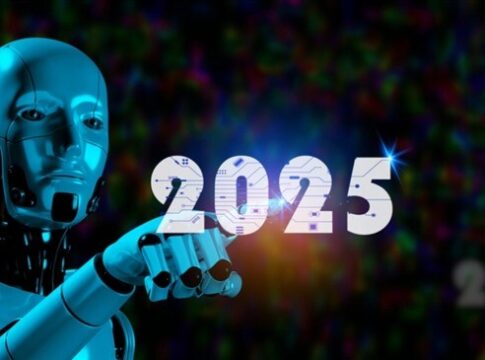As we stand on the brink of a technological revolution, 2025 is poised to be the year artificial intelligence (AI) transcends its current capabilities. From enhancing business operations to reshaping personal interactions, AI’s potential to redefine various facets of life is immense. Industry experts and thought leaders offer their insights on the anticipated advancements and challenges AI will present in the coming year.
The Rise of AI Agents and Enhanced Multimodal Models
AI’s evolution is set to transform from simple data generation to becoming intelligent agents capable of executing complex tasks autonomously. Charles Lamanna from Microsoft envisions a future where AI agents operate behind the scenes, addressing technical issues and streamlining business functions without human intervention. This “team of agents” marks a shift toward more seamless and efficient operational structures.
Google Cloud’s Andi Gutmans highlights the illumination of “dark data,” where AI will unlock the potential of unstructured information, enhancing businesses’ ability to leverage vast data reserves for strategic decision-making. Meanwhile, Megh Gautam of Crunchbase foresees a decisive shift towards deploying AI in targeted, high-value applications, particularly in sales and customer support.
Quantum Computing Meets AI
Quantum computing’s integration with AI is anticipated to generate significant breakthroughs. Dr. Rajeeb Hazra of Quantinuum predicts that by 2025, quantum-AI systems will enhance data analysis in fields such as material design and personalized medicine, overcoming current data limitations and propelling scientific advancements.
Ethics and Trust in AI
As AI’s role expands, ethical considerations become paramount. Adobe’s Grace Yee emphasizes the importance of embedding ethical principles into AI development, ensuring that trust and responsibility drive market success. This ethical shift is expected to be a competitive differentiator for businesses.
AI’s Human Touch and Cyber Challenges
AI is on the cusp of passing the “speech Turing test,” says Dr. Alan Cowen of Hume AI, with voice interactions indistinguishable from human conversations. This advancement will lead to deeper human-AI relationships, but also raises concerns about manipulation by malicious actors, as highlighted by Jon Clay of Trend Micro.
Industry-Specific Impacts and Innovations
In healthcare, Molly Alter from Northzone anticipates AI-driven transparency in treatment costs and patient data accessibility, transforming the healthcare experience. Meanwhile, Rashmi Misra from Analog Devices predicts the rise of edge-AI chips, enabling real-time tasks with improved efficiency.
In the energy sector, Raghu Madabushi of National Grid Partners notes the shift towards energy-efficient AI models, addressing the scalability challenges posed by large language models.
The Future of Work and AI Integration
AI’s integration into the workforce promises to enhance productivity and redefine roles. Brandon Roberts from ServiceNow suggests AI could create 10-20% additional capacity in organizations, driving efficiency and innovation.
In summary, the AI landscape in 2025 is set to be characterized by significant technological advancements, ethical considerations, and industry-specific innovations, offering new opportunities and challenges. As businesses and individuals navigate this evolving terrain, the focus will be on harnessing AI’s potential while addressing the ethical and societal impacts of its widespread adoption.


